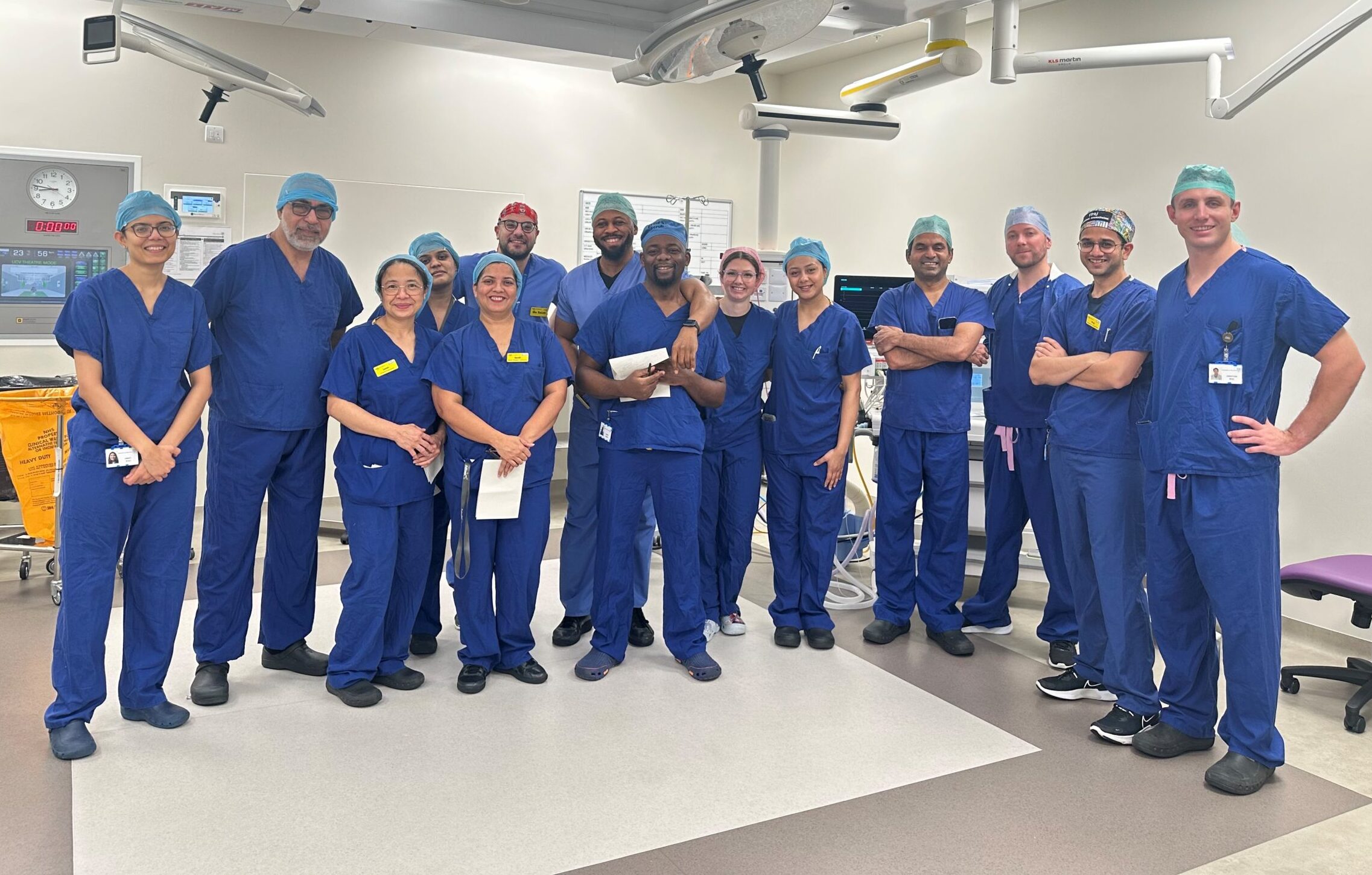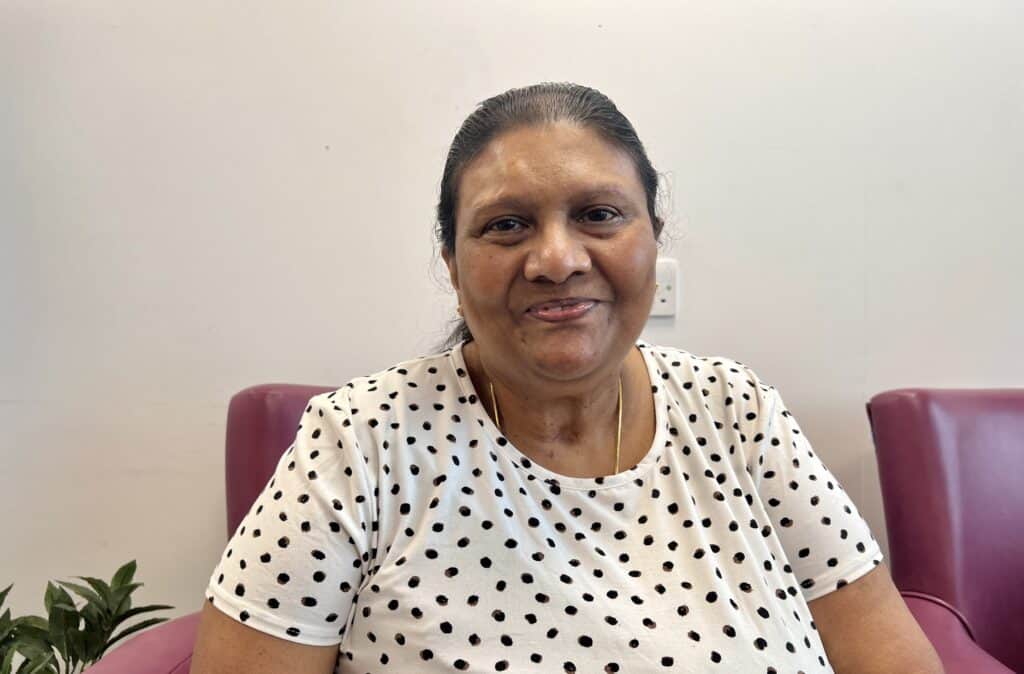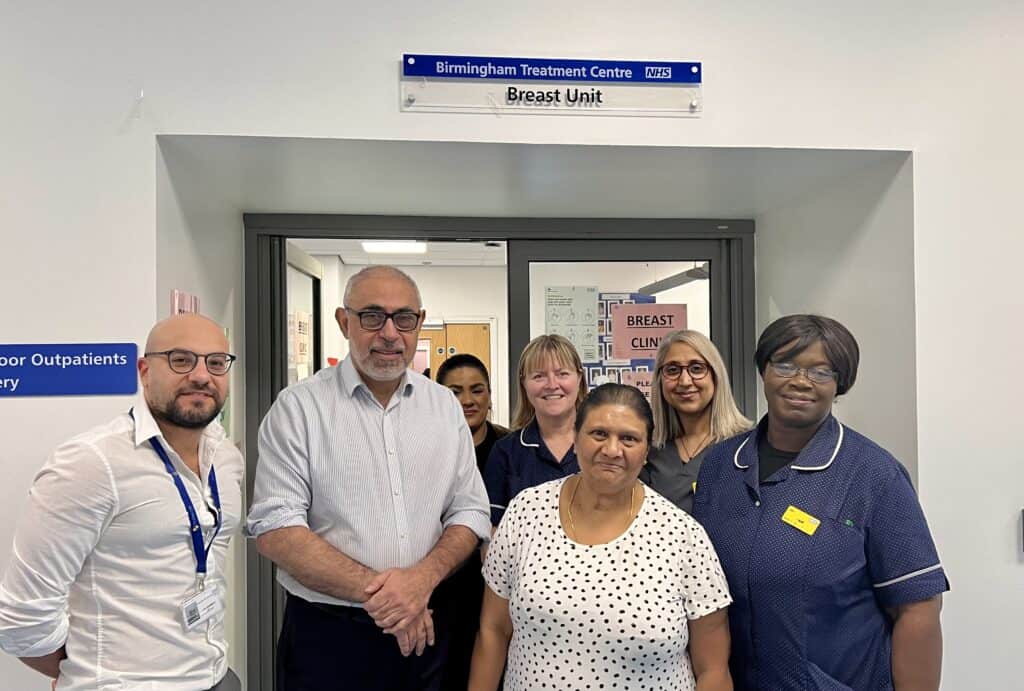
A retired NHS nurse has become the first patient to undergo “awake” breast surgery at the Midland Metropolitan University Hospital in Smethwick.
Felicia Selvaraj, aged 63, underwent a right total mastectomy and sentinel node biopsy at the hospital, run by Sandwell and West Birmingham NHS Trust.
Surgeons successfully performed the procedure under regional anaesthesia, which “blocks” a specific area of the body, and conscious sedation. Felicia, from Solihull, was safely discharged the following day.
Clinicians from the Trust’s breast unit at Birmingham Treatment Centre, along with anaesthetic colleagues, made the decision to perform the surgery while the mum-of-two was awake as she was at a higher risk of potential complications if she were to undergo the procedure under general anaesthetic, due to her medical history.
This included a severe COVID-19 infection that led to her spending 55-days on an intensive care unit. She was anxious to avoid a similar experience following her breast surgery, and so being awake meant she could avoid staying on a high-dependency unit, which is where patients who have undergone major surgery are usually cared for.

Felicia, who retired from the NHS in 2024 after 22 years of service, said: “On the day of surgery, the surgeon Mr Mehboob Mirza and two anaesthetic consultants, Dr Viraj Shah and Dr Karuppudayar Sankar, explained the procedure to me, including the nerve block. They also mentioned that I could bring a device to listen to music or watch videos if I preferred.
“I went to sleep at some point during the procedure, but I was completely awake during the skin closure. I didn’t feel any pain at all.
“I had been very worried before the surgery, as I had previously undergone a tracheotomy and been on a ventilator, but my concerns were completely changed by being able to have the nerve block. I have been extremely pleased with the care I received during and after my surgery.”
Dr Viraj Shah, consultant anaesthetist at the Trust said: “This type of surgery is definitely an option for patients who are not keen on or are not fit for general anaesthetic and there are also other benefits such as reducing the length of time patients need to stay in hospital recovering from an operation.”
Mr Mehboob Mirza, consultant breast surgeon and clinical lead, whose team performed the surgery also added: “We intend to use this technique in the future for high-risk patients who require surgery at the Midland Met, to avoid the need for them to stay on a high dependency or intensive care unit.
“I’m happy that we are able to offer this as an alternative to patients so that they can receive the care they need.”

Felicia’s breast cancer was first detected in November 2024, after she attended a breast screening for women aged between 50 and 71. The surgery successfully removed all cancerous breast tissue, and now that she has healed from surgery, her treatment will continue with medication and preventative radiotherapy.

